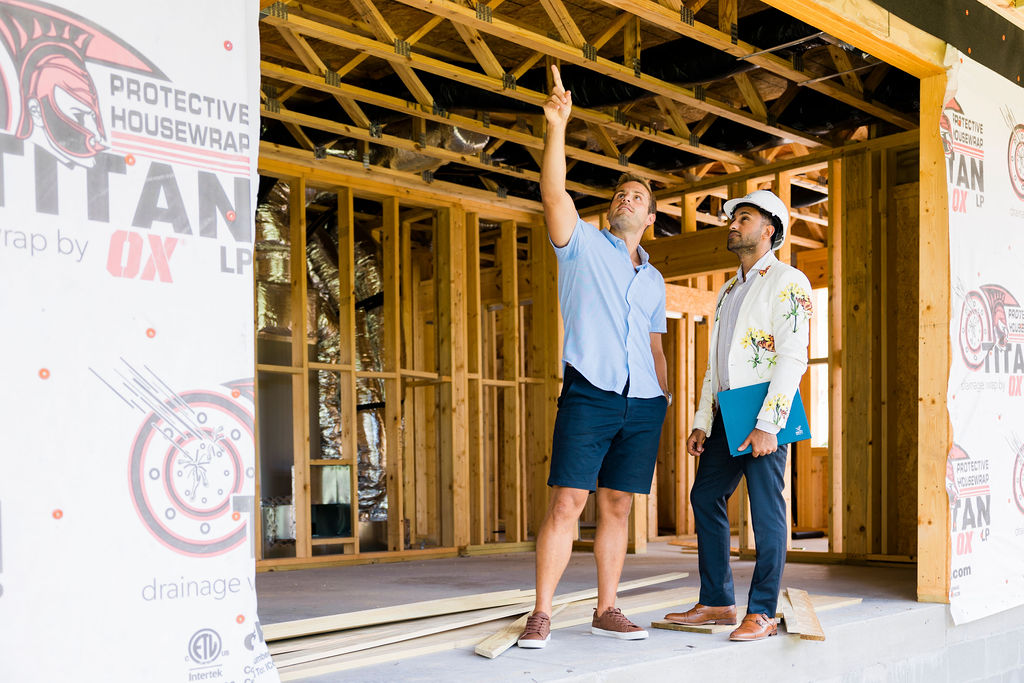When buying a home, there are many questions and decisions that a new homeowner needs to make. One of those questions is, “Do I need to have a home inspection?” While a home inspection is not required prior to purchasing your new home, we at Nest Realty will always recommend getting a full home inspection, even with new construction, to make sure the home is in good condition before the buyer moves in.
But what is a home inspection? A home inspection is the process in which a professional inspector completes a thorough examination of the home to make sure everything is working properly and functioning as intended. An inspector will walk through the home and analyze the general condition and safety level of the home before you purchase it.

In a home inspection, they will closely review the exterior of the home for common concerns such as structural issues, holes or leaks in the roof, or missing or damaged siding. They also closely check over the interior of the home at the windows, any permanent appliances, plumbing, the electrical panel, and more. Not only are they making sure that everything is in working order, but they’re also looking out for any potentially dangerous issues like faulty electrical wiring and cracks in plumbing or the foundation. Keep in mind, there are some things that an inspector will not do, like cut into the drywall to see inside the walls or into pipes or sewer lines. If the inspector suspects there are major concerns, a qualified professional should be called in to further examine the area. For example: If the HVAC seems to be deteriorating, an HVAC professional should come to the property to diagnose the unit. If pests, mold, or asbestos are suspected, the inspector will recommend an additional inspection to be completed by a specialist for an in-depth analysis.
When does the home inspection take place?
According to Nest Wilmington Broker Nilesh Jethwa, “There is not a set date that the inspection needs to take place, but in North Carolina, it needs to take place before the due diligence period ends. This could be anywhere from 21 to 25 days after the offer has been accepted as long as it’s within the window of due diligence.”

Home inspections are not generally a great cost, but an agent can request an estimate for the home. Generally the estimate is based on the age of the home, if it’s on a crawl space, and the square footage of the home. One inspector may charge $450 where another could charge $650. It’s important to go with a trusted and well-reviewed inspector.
The inspection itself could take anywhere from two to four hours, depending on the size and/or age of the home. The buyer should plan to attend the home inspection, and if they are unable due to living out of town or their work schedule, their agent should be on-site with the inspector so that they can explain their findings, clarify which issues are cosmetic or major concerns, and even recommend routine maintenance for the home for first-time buyers. We recommend that the buyer (or their agent) plan to spend the final 30 to 45 minutes of the inspection at the home on standby while the inspection is finalized. Once the inspection is complete, an official report will be provided, generally within a day or two, with notes, details, and photos on all major and minor issues found during the inspection.
Repairs can also be used for negotiation. While repairs are not required to be completed by the seller, the buyer can work with their agent to determine which repairs they’d like the seller to complete before closing. Repairs can also be used for negotiating the contract terms. For example, the buyer can request a repair quote from a contractor in order to deduct the repair costs from the offer. “We see this more with cash deals, but everything is negotiable. If a buyer has an estimate, they could ask the seller to deduct the repair costs from the offer,” Nilesh says.

Alternatively, based on the inspection report, the buyer needs to decide if they’d like to proceed with the purchase or walk away if any repairs are too large for their comfort level (or potentially their budget). A buyer can walk away at any time, but they will lose their due diligence money. In some cases, this may be worth it in the long run. We also recommend having the inspector make a return trip to inspect any repairs the seller may have completed, just to be sure they were completed to a professional standard, and will not create more issues for the new buyer. This is a minimal cost and time commitment as the inspector would only double check the completed repairs, not do another full sweep of the home.
Whether you’re purchasing a pre-loved home or a brand new one, an inspection is a small additional step in the purchasing process that could save you time, money, and potentially a lot of frustration in the long run.
Melissa Gagliardi is Marketing Director with Nest Realty Wilmington. She helps keep the creative process aligned with logistics to ensure every piece of the puzzle fits seamlessly here at Nest. To learn more about Melissa, visit her bio page.
